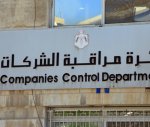You are here
Palestinian Authority adrift after three months of unrest
By AFP - Jan 05,2016 - Last updated at Jan 05,2016

A relative of Palestinian Ishaq Badran, who allegedly carried out an attack against Israelis, mourns as she looks at his body, after it was released by Israel, during his funeral in the West Bank city of Ramallah on Tuesday (Reuters photo by Mohamad Torokman)
RAMALLAH, Palestinian Territories — Three months into a wave of violence some have likened to a new uprising, the Palestinian Authority has found itself adrift and increasingly out of touch with frustrated youths behind the unrest, analysts say.
There is even speculation of an eventual collapse of the PA, the governing authority set up under the 1990s Oslo accords that were meant to lead to a final peace deal.
"Young people see no political horizon and suffer from economic crisis and unemployment," with nearly half jobless compared with more than 27 per cent of the overall population, said Ghassan Khatib, vice president of Birzeit University near Ramallah and a former Palestinian Cabinet minister.
Young Palestinians see little hope of an independent state more than two decades after the Oslo accords — and many do not feel president Mahmoud Abbas represents their concerns.
They have come of age as Israeli settlement building has continued and with their own political leadership deeply fractured.
In a recent poll, two-thirds of Palestinians said they believed a new armed Intifada would serve "national interests" better than negotiations.
Security coordination between the Palestinian Authority and Israel has at the same time been maintained, an arrangement some analysts say is vital for Abbas to keep hardliners who oppose him in check.
Palestinian elections have not been held in a decade due to the bitter split between Hamas, the Islamist movement which rules the Gaza Strip, and Abbas' Fateh, based in the occupied West Bank.
Abbas' mandate expired in 2009 but he remains in office because there have been no polls. The Palestinian parliament last met in 2007, following a general election the previous year won by Hamas.
"The leaders are incapable of satisfying their [young Palestinians'] political and economic demands," said Khatib.
He said Palestinian politics “is at an impasse and incapable of reinventing itself”.
‘We will not shed a tear’
The unrest has seen violent protests as well as a wave of Palestinian knife, gun and car-ramming attacks against Israelis.
Violence since the start of October has claimed the lives of 139 people on the Palestinian side, as well as 22 Israelis, an American and an Eritrean.
Many of the Palestinians were killed while carrying out attacks, while others were shot dead by Israeli security forces during clashes.
A large portion of the attackers have been young people, including teenagers.
In the early stages of the unrest, PA security forces allowed crowds to approach checkpoints, where they protested and clashed with Israeli security forces.
“Since then, they have increased their presence,” said Seif Al Islam Daghlas of the Birzeit student council.
“Especially when US Secretary of State John Kerry came [in November], we saw Palestinian security was now stopping our protests.”
Such an intervention could be seen recently when PA security forces in plainclothes violently dispersed protesters moving towards an Israeli checkpoint on the outskirts of Ramallah.
They also detained journalists and confiscated equipment, AFP journalists witnessed.
Kerry’s visit and other international efforts have failed to restore calm, and the US secretary of state even warned in early December about the potential repercussions of a Palestinian Authority collapse.
“Without the PA security forces, the IDF [Israel Defence Forces] could be forced to deploy tens of thousands of soldiers to the West Bank indefinitely to fill the void,” Kerry said.
“Are Israelis prepared for the consequences this would have for their children and grandchildren who serve in the IDF when the inevitable friction leads to confrontation and violence?”
Israel’s government has also reportedly held discussions on the possibility of the PA falling apart.
For Mohammed Shtayyeh, a high-ranking Fateh member and Palestine Liberation Organisation official, the collapse of the PA, which remains heavily dependent on international aid, would mean little.
More than 60 per cent of the West Bank is already under complete Israeli control.
“Should Israel cause it to collapse by imposing more restrictions, we will not shed a tear because at the end of the day the true head of the West Bank is the Israeli military governor,” he said, referring to the Israeli defence ministry unit that manages civilian affairs in the Palestinian territories.
Where the unrest will lead is a constant topic of debate among both Israelis and Palestinians.
Khalil Shikaki, whose Palestinian Centre for Policy and Survey Research conducted the poll showing growing frustration among Palestinians, said the situation was tenuous.
“If someone commits a serious error one day, such as the Israeli army killing many people or the demoralised Palestinian security forces turning their guns on Israelis,” a significant escalation could occur, he said.
Related Articles
RAMALLAH, Palestinian Territories —Palestinian security forces scuffled with Hamas supporters as they broke up a protest on Friday in the We
Ramallah, Palestinian Territories — Hundreds of Palestinians demonstrated on Saturday in the occupied West Bank to demand the Palestinian Au
RAMALLAH — Palestinian forces have arrested around 100 Hamas members in the West Bank, a security official said Friday, raising tension betw

















